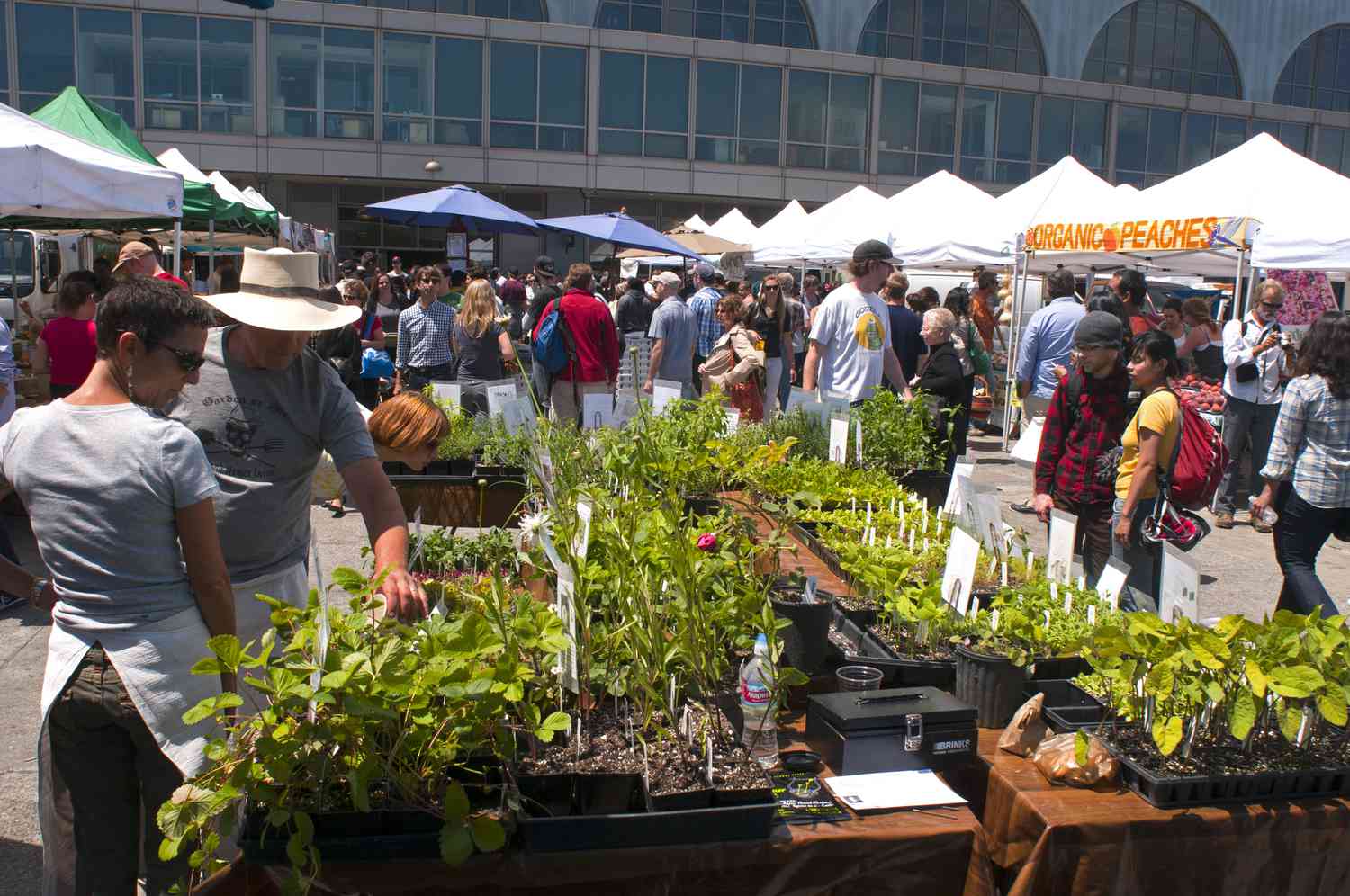
Local markets are vibrant hubs of culture, commerce, and community, offering a unique glimpse into the daily lives and culinary traditions of the areas they serve. Local markets stand as testament to the diversity and richness of local produce, crafts, and goods, reflecting the heart and soul of communities around the globe. From bustling bazaars filled with the aroma of spices to quiet farmers' markets showcasing the season's freshest produce, these markets are not just places to shop but are vital for sustaining small businesses and fostering social connections. In this post, we'll uncover 24 intriguing facts about local markets, revealing how they contribute to the local economy, support sustainable practices, and bring people together through the love of food and artisanal products. Whether you're a seasoned market-goer or a curious traveler, these insights will deepen your appreciation for the important role local markets play in our lives.
Key Takeaways:
- Local markets are vibrant community hubs that support local economy, preserve traditions, and offer unique finds. They also promote healthy eating and provide educational experiences.
- Despite challenges, local markets are evolving with technology, sustainability practices, and community support programs. They continue to innovate and expand, ensuring a bright future.
What Makes Local Markets Unique?
Local markets are vibrant hubs of culture, commerce, and community. They offer a glimpse into the local lifestyle and are often the heart of a community. Here's why they stand out:
-
Diversity of Products: Local markets are renowned for their wide range of products, from fresh produce to handmade crafts, each telling a story of the region's culture and traditions.
-
Support for Local Economy: Shopping at these markets means your money directly supports local farmers, artisans, and small business owners, fostering economic growth within the community.
The Role of Local Markets in Sustaining Traditions
Local markets do more than just sell goods; they play a crucial role in keeping traditions alive.
-
Cultural Exchange: They serve as spaces for cultural exchange, where locals and visitors alike can learn about and appreciate the uniqueness of the area.
-
Preservation of Traditional Crafts: Many markets are home to artisans practicing age-old crafts, helping to ensure these skills are not lost to time.
How Local Markets Adapt to Modern Challenges
Despite their traditional roots, local markets are not stuck in the past. They are constantly evolving to meet modern needs and challenges.
-
Embracing Technology: Some markets now offer online ordering or use social media to reach more customers, blending traditional selling methods with modern technology.
-
Sustainability Practices: Many local markets are leading the way in sustainability, reducing waste and promoting eco-friendly practices among vendors and shoppers.
The Social Impact of Local Markets
Beyond economics and tradition, local markets have a profound social impact on their communities.
-
Community Gathering Spots: They act as gathering spots where people can meet, socialize, and strengthen community bonds.
-
Promotion of Healthy Eating: By providing access to fresh, locally-sourced produce, these markets encourage healthier eating habits among the community.
Unique Finds at Local Markets
Every visit to a local market is an adventure, with unique finds around every corner.
-
Rare Ingredients: Food enthusiasts can discover rare ingredients that are not available in conventional supermarkets.
-
Handcrafted Goods: Shoppers can find one-of-a-kind handcrafted goods, offering a personal touch that mass-produced items lack.
The Economic Benefits of Shopping Locally
Supporting local markets has significant economic benefits for the community.
-
Job Creation: Local markets create jobs, from vendors to those involved in the supply chain, contributing to local employment.
-
Keeping Money in the Community: Money spent at local markets circulates within the community, multiplying its impact on the local economy.
Seasonal Offerings at Local Markets
One of the joys of shopping at local markets is the seasonal variety.
-
Seasonal Produce: Markets offer the freshest seasonal produce, allowing consumers to eat foods at their peak flavor and nutritional value.
-
Holiday and Seasonal Specialties: Many markets feature goods that are specific to certain holidays or seasons, making each visit unique.
The Educational Value of Local Markets
Local markets are not just places to shop; they are also rich educational resources.
-
Learning About Food Sources: They provide an opportunity to learn where food comes from and how it is produced.
-
Cultural Education: Visiting local markets can be an educational experience, offering insights into the local culture, traditions, and history.
Challenges Faced by Local Markets
Despite their many benefits, local markets face several challenges.
-
Competition with Supermarkets: Big supermarkets can offer lower prices due to their scale, making competition tough for small vendors.
-
Regulatory Hurdles: Local markets often face regulatory hurdles that can affect their operation and growth.
The Future of Local Markets
Looking ahead, the future of local markets appears bright, with communities increasingly valuing what they offer.
-
Growing Consumer Interest: There is a growing consumer interest in supporting local businesses and in the authenticity and quality that local markets offer.
-
Innovation and Adaptation: Local markets continue to innovate and adapt, ensuring they remain relevant and vibrant community hubs.
-
Expansion of Offerings: Many markets are expanding their offerings to include more than just food, incorporating entertainment, educational workshops, and more.
-
Increased Focus on Sustainability: As sustainability becomes more important to consumers, local markets are likely to continue leading the way in eco-friendly practices.
-
Community Support Programs: Some markets are starting community support programs, like food donation drives and educational initiatives, to give back to their communities.
-
Collaborations with Local Businesses: By collaborating with local businesses, markets can offer a wider range of products and services, further boosting the local economy.
A Final Stroll Through Local Market Wonders
Local markets are more than just shopping destinations; they're vibrant hubs of culture, tradition, and community spirit. From the fresh, farm-to-table produce to the unique, handcrafted goods, these markets offer a glimpse into the heart of a community. They support local economies, promote sustainable living, and bring people together in a way that few other places can. Next time you visit one, take a moment to chat with vendors, sample the local flavors, and soak in the atmosphere. You're not just making purchases; you're becoming part of a story that stretches back through generations. Remember, every item has a tale, and every visit adds a layer to your own. So, keep exploring, keep supporting, and keep discovering the magic hidden in local markets around the globe.
Frequently Asked Questions
Was this page helpful?
Our commitment to delivering trustworthy and engaging content is at the heart of what we do. Each fact on our site is contributed by real users like you, bringing a wealth of diverse insights and information. To ensure the highest standards of accuracy and reliability, our dedicated editors meticulously review each submission. This process guarantees that the facts we share are not only fascinating but also credible. Trust in our commitment to quality and authenticity as you explore and learn with us.


